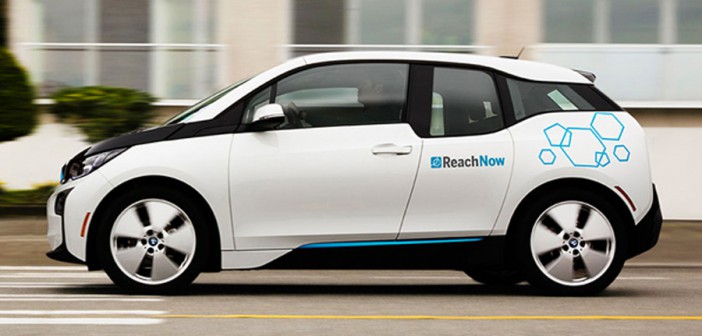Count BMW as the latest auto company to participate in the new sharing economy and figure if you can’t beat ‘em, join ‘em.
The company’s MINI brand plans to help its customers rent out their vehicles like Uber drivers rent their spare seats and Airbnb does with lodging space. MINI will supply systems that accept payment and track vehicles to make sure they aren’t stolen, and if the whole platform works, BMW will expand the service to its namesake luxury-car brand at little cost to owners.
“It’s going to be kind of like Airbnb on wheels,” Peter Schwarenbauer, the BMW executive who oversees MINI, told Bloomberg at the Beijing auto show. “There’ll be those who say, ‘Never, ever will I lend my car to strangers.’ Then there’ll be others who love the idea of halving their leasing rate.”
With its inaugural ReachNow car-sharing service just launched in Seattle, BMW has become one of the most aggressive automakers at exploring possibilities in the growing mobility services sector where the traditional car industry is trying to compete with the likes of Uber, Lyft and other providers. As “Ubernomics” spreads across global business, it is forcing big companies to find ways to participate in the socialization of assets and to leverage their brands, experience and other attributes to compete with newer companies that are launching digitally and transforming the way the world works.
This is occurring in ways big and small. Lyft, for example, has launchedits first national TV advertising campaign in which it positions its ride-sharing services as an antidote to the absurdity of traffic. It certainly helps Lyft’s efforts that General Motors recently invested $550 million in the startup, which remains much smaller than Uber.
The ad campaign “represents the next logical step along the road of just becoming a great global brand and really being a big part of the conversation that’s happening right now about culture and transportation and how all of this stuff is evolving for a generation,” Jesse McMillin, Lyft’s creative director told Adweek.
The once-distinct verticals that now comprise the mobility services industry are coming together in other ways as well. On Tuesday, Lyft and Uber, along with Ford, Volvo and Google—a really interesting grab-bag of partners—announced that they’re forming a “coalition” to urge federal action on self-driving cars, specifically to push for a clear set of federal standards whose adoption would promote the safe and quick adoption of autonomous driving. Former top federal auto-safety official David Strickland will be the counsel and front man for the group.


